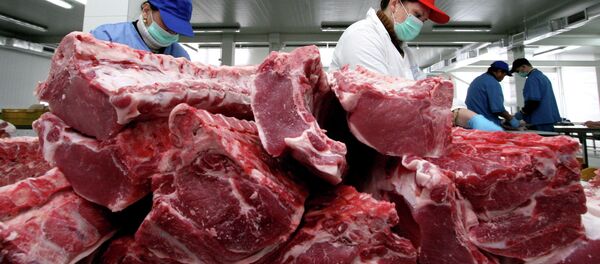Destined for animal research only, the lamb was sold to a slaughterhouse in November 2014 along with unmodified sheep, and then onto an unsuspecting customer, the Telegraph reported.
Now, a judicial inquiry has been launched to find out how the female lamb belonging to the French National Institute for Agricultural Research (INRA) ended up being served as dinner.
The lamb had been given the green fluorescent protein gene of a jellyfish. According to the INRA, the genetically-modified sheep were being used to monitor the activity of altered genes, and in this case, to monitor transplants for heart disease.
An internal investigation suggests that an employee acting out of revenge after a dispute with a colleague may have intentionally mixed the modified lamb in with the unmodified ones. The INRA has suspended an individual pending its final findings.
While the modified lamb posed "no or negligible risk" to humans, Gérard Pascal, a former INRA biochemist, told French newspaper Le Parisien that its introduction into the human food chain was "intolerable."
"Beyond the ethical issues, one cannot put foodstuffs into the market that haven't been the subject of deep research. Until they've been studied, one cannot assess the risk," he said.
The incident has thrown the prestigious INRA into controversy.
"This affair seems unbelievable and threatens to do harm to an institute that is renowned for its seriousness. But it also shows, if the facts prove correct, that the best-controlled institution cannot ward against individual waywardness," a judicial source said.
The INRA's Benoit Malpaux said: "This is unacceptable and calls for the utmost severity. We are a world-renowned institute. We cannot tolerate such acts."
The charge of "placing on the market a genetically modified product or containing such organisms" carries a maximum of one year in prison and a 75,000 euro fine.




